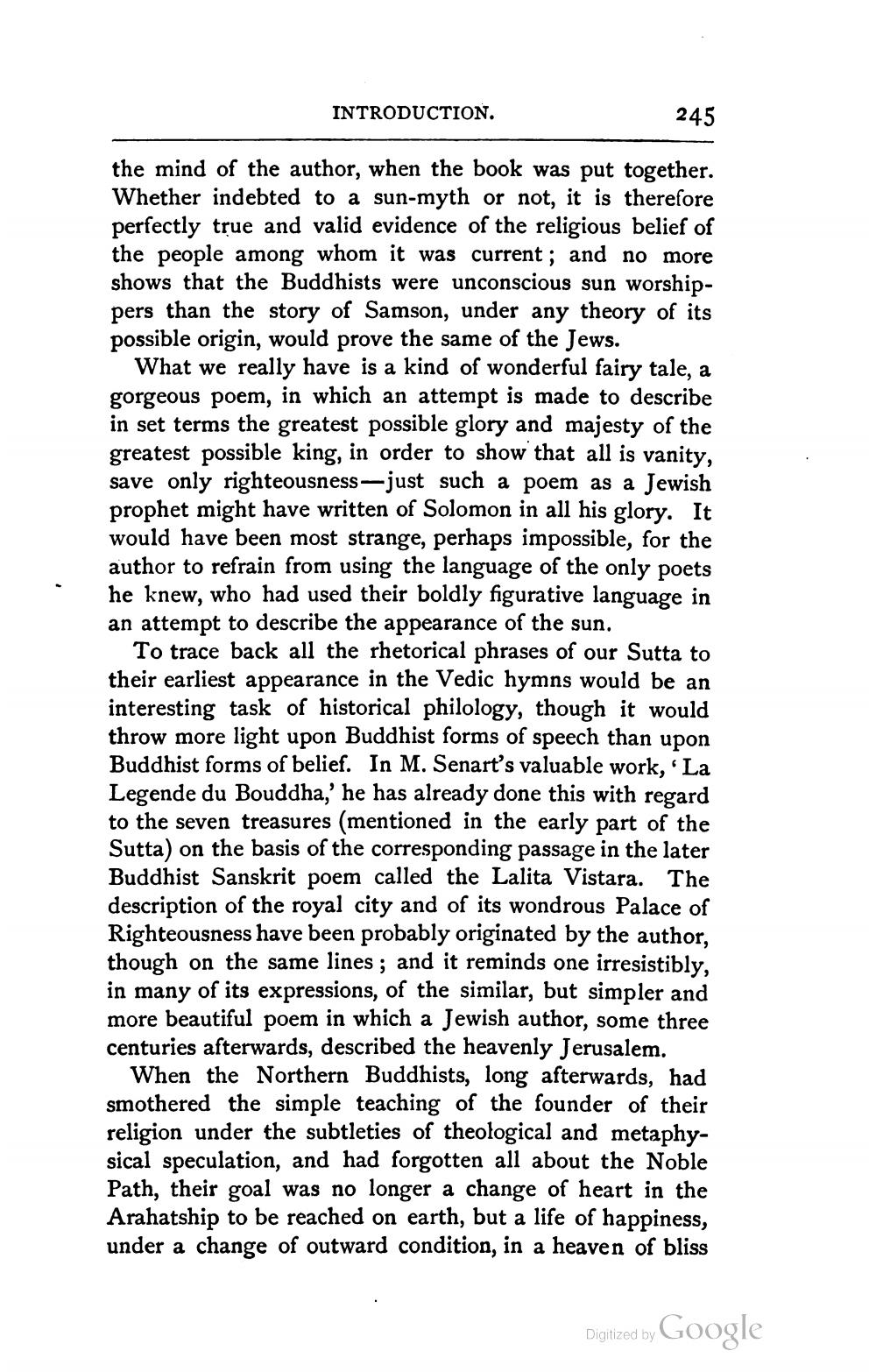________________
INTRODUCTION.
245
the mind of the author, when the book was put together. Whether indebted to a sun-myth or not, it is therefore perfectly true and valid evidence of the religious belief of the people among whom it was current; and no more shows that the Buddhists were unconscious sun worshippers than the story of Samson, under any theory of its possible origin, would prove the same of the Jews.
What we really have is a kind of wonderful fairy tale, a gorgeous poem, in which an attempt is made to describe in set terms the greatest possible glory and majesty of the greatest possible king, in order to show that all is vanity, save only righteousness-just such a poem as a Jewish prophet might have written of Solomon in all his glory. It would have been most strange, perhaps impossible, for the author to refrain from using the language of the only poets he knew, who had used their boldly figurative language in an attempt to describe the appearance of the sun.
To trace back all the rhetorical phrases of our Sutta to their earliest appearance in the Vedic hymns would be an interesting task of historical philology, though it would throw more light upon Buddhist forms of speech than upon Buddhist forms of belief. In M. Senart's valuable work, La Legende du Bouddha,' he has already done this with regard to the seven treasures (mentioned in the early part of the Sutta) on the basis of the corresponding passage in the later Buddhist Sanskrit poem called the Lalita Vistara. The description of the royal city and of its wondrous Palace of Righteousness have been probably originated by the author, though on the same lines; and it reminds one irresistibly, in many of its expressions, of the similar, but simpler and more beautiful poem in which a Jewish author, some three centuries afterwards, described the heavenly Jerusalem.
When the Northern Buddhists, long afterwards, had smothered the simple teaching of the founder of their religion under the subtleties of theological and metaphysical speculation, and had forgotten all about the Noble Path, their goal was no longer a change of heart in the Arahatship to be reached on earth, but a life of happiness, under a change of outward condition, in a heaven of bliss
Digitized by Google




